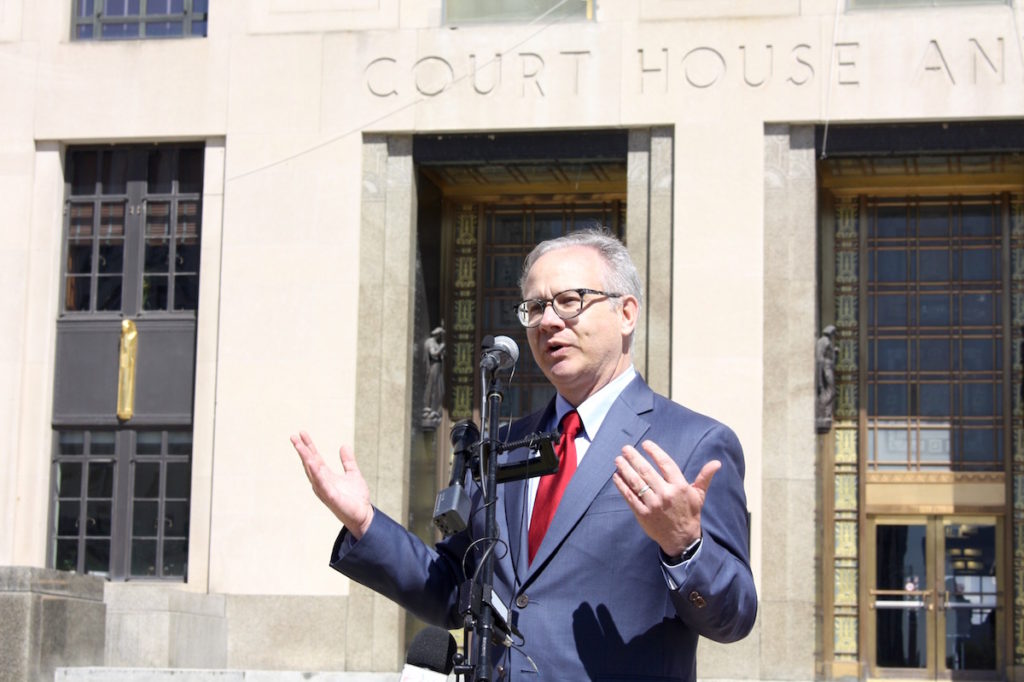
Nashville Mayor David Briley says he’s setting to work on a new plan for mass transit in Nashville following this week’s defeat of a $5.4 billion proposal featuring light rail.
Briley says he’s already spoken with some opponents of the failed transit plan, and he intends to push forward with improvements to the city’s bus system. He says Nashville’s competitiveness depends on the city having a working transportation system.
“I can tell you that we’re not waiting for a referendum to work on transit,” he says. “We’re already starting to think about what the next steps are going to be, with or without a referendum.”
The vote would have authorized a one-cent increase to Nashville’s sales tax rate, as well as increases to hotel, rental car and business taxes. Those would have generated more than $100 million a year in revenue for transit.
Some supporters of transit say it could take several years to come up with a comparable plan to relieve congestion in the Nashville area.
Briley gave his first interview since the transit defeat Wednesday morning, following a press conference at the Tennessee State Capitol announcing the relocation of AllianceBernstein, a New York-based asset management firm. The company intends to move its headquarters to Nashville by 2020.
AllianceBernstein had been scouting cities for an expansion office. During site visits, company officials were impressed with Nashville’s growth potential, says chief operating officer Jim Gingrich.
“We’ve been in New York for 50 years, and so part of our evaluation was not just where Tennessee and Nashville were today, but what do we think Nashville’s going to be in 10, 20 and 30 years from now?”
AllianceBernstein will add about 1,000 jobs to Nashville once the move is complete. It intends to locate downtown.
Impact On Amazon
AllianceBernstein wasn’t spooked by the failure of the transit referendum. But local officials worry the vote could deter future relocations — especially Amazon’s plans to create a second headquarters. The city has been on a shortlist of 20 possible locations since January.
Gov. Bill Haslam says he knows from speaking with company leaders they were watching the referendum’s results. The Republican governor helped set the referendum in motion last year, by championing a state law that lets cities and counties increase their local sales tax to pay for transit. Managing the growth that a company like Amazon would bring is what state officials say they had in mind when they approved the legislation.
Haslam is certain Amazon executives have also been thinking ahead.
“They were pretty clear up front that one of the considerations was a city with some sort of public transit system that would meet the needs of 50,000 workers.”
Now that the referendum has failed, Haslam says, Nashville officials will need to find another way to show they can handle the influx of so many people.
Not just in case Amazon comes. But for every company considering relocating to Middle Tennessee.


